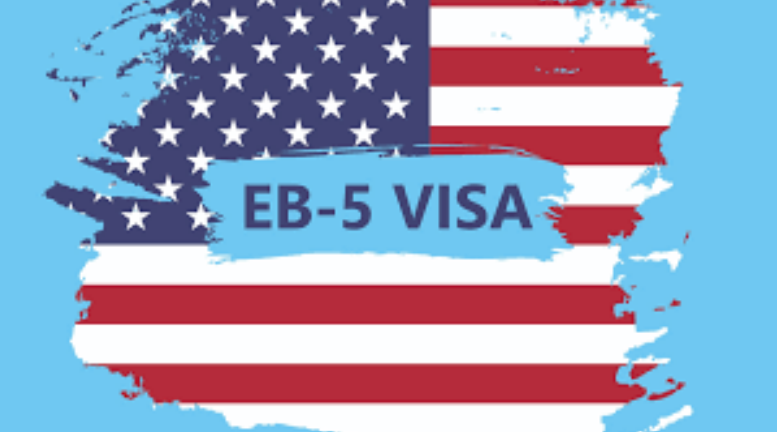The E-2 Visa: A Strong Investment Opportunity in Changing Political Times
Shirin Navabi • February 13, 2025
The E-2 Visa is a non-immigrant visa that allows foreign investors from treaty
countries to live and work in the United States by starting or purchasing a business. Unlike other visa categories, it does not require a fixed minimum investment amount. Instead, applicants must demonstrate that their investment is substantial and sufficient to ensure the success of their business. The visa is renewable indefinitely as long as the business remains active and meets the necessary criteria, making it an attractive option for entrepreneurs seeking long-term opportunities in the U.S.
One of its key advantages is flexibility. Investors can establish a new business, acquire an existing one, or enter into franchise opportunities. Additionally, spouses and children under 21 can accompany the primary applicant, with spouses eligible to apply for work authorization. This makes the E-2 Visa a practical option for business-minded individuals looking to establish themselves in the U.S. market.
While the E-2 Visa itself has remained a stable option, shifts in U.S. immigration policies have influenced the application process and overall investor experience. Understanding these changes is essential for anyone considering this pathway.
Policy Shifts and the E-2 Visa: Lessons from the Past
During the first Trump administration (2017–2021), U.S. immigration policies became more restrictive across multiple visa categories. Although the E-2 program was not directly limited, broader changes had an impact. The "Buy American, Hire American" Executive Order, signed in 2017, led to heightened scrutiny of visa applications, requiring investors to provide stronger evidence that their business would create jobs and contribute to the U.S. economy. This resulted in an increase in Requests for Evidence (RFEs) and denials for those unable to meet these expectations.
Another significant change was the suspension of the Interview Waiver Program, which meant all E-2 applicants, including renewals, had to attend in-person interviews at U.S. embassies. This extended processing times and increased scrutiny of applications. Additionally, visa reciprocity agreements were reviewed and adjusted, impacting validity periods and costs for certain countries. For instance, Iranian citizens were deemed ineligible for the E-2 Visa due to the termination of the treaty. These adjustments significantly affected investors from impacted nations, increasing their costs and renewal frequency.
Despite these policy shifts, the approval rate for E-2 visas remained relatively stable. According to data from the U.S. Department of State, there were over 43,000 approvals in 2019, reflecting the program’s continued viability. Even in 2020, when the COVID-19 pandemic caused global disruptions, approval numbers remained significant. These figures highlight that while the process became more rigorous, well-prepared investors continued to secure visas by demonstrating strong business plans, substantial investments, and clear economic contributions.
What to Expect Moving Forward
As the new Trump administration takes shape, further immigration policy changes are likely. While it is too soon to predict the exact impact on the E-2 Visa, past trends suggest increased scrutiny. However, the program itself has remained intact across multiple administrations, reinforcing its reliability for foreign entrepreneurs.
Those considering this visa should stay informed and ensure their applications meet evolving requirements. A well-prepared investment strategy, clear documentation, and a defined job creation plan can make a significant difference in navigating any potential policy shifts.
Why the E-2 Visa Remains a Strong Choice
The E-2 Visa continues to be a resilient and valuable option for foreign entrepreneurs. Even during periods of policy change, approval rates have remained strong for investors with well-structured applications. The ability to renew indefinitely, combined with its flexibility in investment size and business type, makes it one of the most attractive pathways for international investors.
With the right preparation, investors can confidently pursue the E-2 Visa, knowing that history has shown its stability even amid shifting political landscapes. By staying ahead of policy changes and ensuring a solid business strategy, entrepreneurs can take advantage of the opportunities the U.S. market has to offer.
If you are ready to take the next step toward launching your business in the U.S., you can contact our office for expert guidance and personalized assistance with your application.
This blog is not intended to be legal advice and nothing here should be construed as establishing an attorney client relationship. Please schedule a consultation with an immigration attorney before acting on any information read here.
Shirin Navabi
Similar Posts

Embarking on the EB-5 immigration journey is both a profound personal endeavor and a strategic investment decision. For individuals seeking to make the United States their new home while contributing to its economic landscape, the EB-5 Immigrant Investor Program offers a pathway unlike any other. This program, established by the U.S. government in 1990, provides foreign investors with the opportunity to obtain permanent residency in the United States by investing in job-creating enterprises . However, navigating the complexities of the EB-5 process requires a thorough understanding of its intricacies, requirements, and potential pitfalls. In this guide, we provide a brief overview of the steps and documents involved in the EB-5 immigration process, shedding light on its key components, eligibility criteria, investment options, and procedural steps, empowering prospective investors with the knowledge needed to embark on this transformative journey with confidence. Before selecting a project and making the investment, it is important for an EB-5 investor to meet with an immigration attorney to strategize for the application. It is required to show the Immigration Service that all funds used in the investment were lawfully earned and retained , so your attorney will want to understand where the money for the investment is coming from and where it has been held since it was earned. Once satisfied with the source and tracing of funds, the investor can select a project to invest in. Following the passage of the EB-5 Reform & Integrity Act, certain investment projects have already been pre-approved by USCIS by filing form I-956 and receiving designation as a Regional Investment Center. The required minimum investment is $1,050,000 by default; however, this amount is reduced for investment centers in “Targeted Employment Areas” to $800,000 . After submitting the investment to the regional center, the investor will then work with their attorney to create the I-526 petition. At this stage of the case, it is time to show USCIS the source and tracing of all of the funds used for the investment. The types documentation required in order to show the lawful source and tracing of funds is extremely broad and highly dependent on where the money is coming from in each particular case, but the most common documents include W-2 or 1099 tax forms, federal and state tax returns, bank account statements, purchase and sale contracts from the sale of real estate, stock certificates, loan contracts, inheritance documents, and wire transfer records, among many other possibilities . EB-5 applicants can either process their green cards through USCIS by filing an I-485 application for Adjustment of Status, or process through the consulate in their home country . If already in the United States on another valid status, the Adjustment of Status application can be submitted concurrently with the I-526 petition. If processing through a consulate overseas, the investor will have to wait until the I-526 is approved before beginning the consular process. The primary applicant, along with a spouse and any unmarried children under 21 years of age are able to receive permanent residency through the EB-5 process. At the completion of either process, whether requesting the Green Card within the United States or seeking entry through a consulate, USCIS will issue conditional green cards, with a validity of two years . Within the last three months before the conditional green card expires , the investor and family will need to file an I-829 application for removal of conditions on the green card. At this stage, nearly two years after the investment has been made, the Immigration Service is confirming whether the investment remains in the project and the requisite 10 jobs have been created . Following I-829 approval, the investor and their family will receive permanent green cards, with a 10-year validity. The investor and family will be able to apply for United States Citizenship five years after the initial green card is issued . The conditional green card does count for this purpose, so citizenship will become a possibility approximately 3 years after the permanent green cards are issued. In conclusion, the EB-5 Immigrant Investor Program stands as a unique avenue for individuals around the globe to fulfill their aspirations of living and thriving in the United States. Through strategic investment and dedication to job creation, participants not only secure permanent residency but also contribute to the nation's economic growth and prosperity. However, it is crucial for prospective investors to approach the EB-5 process with meticulous planning, thorough research, and expert guidance to navigate its complexities successfully . By understanding the program's requirements, exploring investment options, and adhering to procedural guidelines, aspiring immigrants can embark on their EB-5 journey with clarity and confidence. Ultimately, the EB-5 program represents more than just a pathway to residency—it embodies the spirit of entrepreneurship, innovation, and opportunity that defines the American dream. If you believe you may qualify for the EB-5 program or if you have any questions, please schedule a consultation with one of our experienced attorneys and we will be more than happy to assist you.

The E-2 visa, a valuable pathway for foreign investors seeking to establish or operate a business in the United States. As experienced immigration attorneys, we are here to provide insights and guidance on navigating the E-2 visa process. The E-2 visa is designed to promote foreign investment and enhance economic growth in the United States. It offers a range of benefits for investors looking to reside and work in the country. One of the primary advantages of the E-2 visa is the ability to bring immediate family members, including spouses and children, to the U.S. to live and study. This visa also provides flexibility in choosing business ventures, allowing investors to pursue their entrepreneurial ambitions in a wide variety of industries. To be eligible for an E-2 visa, foreign investors must meet certain criteria. First, they must be a national of a country that has a treaty of commerce and navigation with the United States that includes the E-2 provision. Additionally, they must make a substantial investment in a bona fide U.S. enterprise and demonstrate their intent to develop and direct the business. There is no specific minimum investment amount required for the E-2 visa, but the investment must be proportionate to the total cost of the business. Furthermore, the investment must be at risk and capable of generating income and job opportunities. When applying for an E-2 visa, thorough preparation is key. Investors should gather the necessary documentation, including financial records, business plans, and evidence of the viability and credibility of the enterprise. The application process involves submitting these documents to the U.S. Citizenship and Immigration Services (USCIS) or at a U.S. embassy or consulate in their home country where there will also be a visa interview. Navigating the E-2 visa process can be complex, and there are potential challenges that investors may face. One common challenge is demonstrating that the business is not marginal, meaning that it has the capacity to generate significant income and provide job opportunities. Another important requirement is showing that the investment is at risk, indicating that the investor's capital is committed and subject to potential gain or loss. Additionally, there may be treaty interpretation issues that require careful analysis and expertise. Given the complexities of the E-2 visa process, seeking professional legal guidance is crucial. An experienced immigration attorney can assess an investor's eligibility, help strategize the investment plan, and navigate potential challenges. We can provide personalized guidance, ensuring that all necessary documentation is in order and that the application is strong and compelling and that you are prepared for your consular interview. If you are interested in learning more about the E-2 visa contact our office. We look forward to working with you.

In years past, spouses of certain E and L visa categories were required to apply for and receive an Employment Authorization Document in order to work in the United States. However, as the result of a settlement reached by USCIS in the class action lawsuit Shergill v. Mayorkas on November 10, 2021, USCIS now considers E and L dependent spouses to be authorized for employment incident to their status.

On March 31, 2024, U.S. Citizenship and Immigration Services (USCIS) implemented a policy update that limits gender marker selections on all immigration forms and systems to two biological sexes: male and female. This change eliminates the option for applicants to select a non-binary or “X” gender marker—an option that had previously been permitted on some forms. While USCIS emphasizes that this update does not change who qualifies for immigration benefits, it may significantly impact how certain applications—particularly asylum claims based on gender identity-related persecution—are understood and evaluated. What Has Changed? Under the revised policy, applicants may now only choose “Male” or “Female” when completing USCIS forms. The ability to select a non-binary or third-gender option is no longer available. Applicants may still request to change their gender marker with USCIS, but only within the male/female binary. Supporting documentation, such as medical or legal records, is not required to make the change. This means that transgender individuals can still align their gender marker with their identity—if it falls within the two binary categories—but non-binary individuals are no longer represented. The change follows guidance issued by the federal Office of Management and Budget (OMB), which called for greater consistency in the collection of sex and gender data across federal agencies. Impact on Asylum Applicants This policy update is especially important for individuals applying for asylum based on persecution related to their gender identity. Under U.S. immigration law, asylum is available to people who have suffered persecution—or fear future persecution—based on their membership in a “particular social group.” This includes people targeted for being transgender, gender non-conforming, or otherwise not aligning with socially expected gender roles in their home country. Although the legal standard for asylum remains unchanged, the removal of the non-binary gender marker could make it harder for some applicants to clearly present and document their identity. In asylum cases, credibility and clarity are crucial. The ability to accurately reflect one’s gender identity on official forms can play an important role in establishing the foundation of a persecution claim. Now, applicants who identify as non-binary or outside the traditional male/female categories may be forced to select a gender that does not align with their lived experience. This could lead to confusion in their case file or require additional explanation during interviews or hearings. This policy could weaken the strength of some asylum claims—not because the underlying facts have changed, but because the official forms now fail to reflect the applicant’s true identity. For example: A non-binary person applying for asylum after being targeted in their home country may now have to select “Male” or “Female” on their asylum application, despite not identifying as either. This mismatch may lead adjudicators to question the applicant’s identity, possibly weakening the strength of the claim or requiring added clarification and documentation. In defensive asylum cases—where applicants are in removal proceedings—such inconsistencies could create unnecessary hurdles and complicate the evidentiary presentation. What Can Applicants Do? Despite the change, individuals can still pursue asylum based on gender identity. The underlying eligibility criteria remain the same. However, applicants should be prepared to clearly explain any differences between their stated identity and the gender marker required on USCIS forms. Applicants are encouraged to: Include a personal declaration explaining their gender identity in detail and how it relates to their fear of persecution. Provide evidence such as affidavits, country condition reports, or expert testimony that supports the claim. Work with an experienced immigration attorney who can help present the claim effectively and prepare for any questions that might arise from the new form limitations. The new USCIS policy on gender markers may seem like a technical update, but for asylum seekers fleeing gender-based persecution, it has real implications. While individuals are still legally eligible to seek protection, the limitation to binary gender options could make it more difficult to fully and clearly present their case. If you or someone you know is facing immigration challenges related to gender identity—or is concerned about how this policy may impact an asylum claim—please contact Santos Lloyd Law Firm to schedule a consultation with one of our experienced immigration attorneys. We’re here to help ensure your voice is heard and your case is handled with the care and expertise it deserves.

In 2025, the immigration landscape continues to shift under the weight of national security concerns, ushered in by Executive Order “ Protecting the United States From Foreign Terrorists and Other National Security and Public Safety Threats. ” This directive tasks federal agencies—including the U.S. Department of State—with implementing enhanced screening and vetting protocols for all foreign nationals seeking visas or other immigration benefits. The result? A dramatically intensified vetting process, along with mounting concerns from immigrants, attorneys, and civil liberties advocates alike. Traditionally, airport security focused on verifying travel documents and screening for prohibited items, while consular officers assessed the legitimacy of visa petitions and the admissibility of applicants. Extreme vetting, however, represents a significant shift toward a far more invasive and comprehensive investigative process. It now includes detailed background checks, biometric verification, digital forensics, and expansive scrutiny of an applicant’s online presence and criminal or financial records. Since President Trump’s second term began in January 2025, the implementation of extreme vetting has expanded rapidly. Today, border screenings go far beyond routine document checks, encompassing a full-scale evaluation of a traveler’s digital life. This pivot reflects the administration’s intensified focus on national security, but it has also triggered urgent discussions about privacy, due process, and the fairness of modern immigration enforcement. At U.S. ports of entry—especially airports—noncitizens are now subject to rigorous and invasive procedures, including: Inspection of cell phones, laptops, and other devices (including deleted content) Review of social media activity on platforms like TikTok, Instagram, and X (formerly Twitter) Biometric scanning, including fingerprinting and facial recognition These measures are no longer confined to travelers from high-risk countries. In practice, extreme vetting applies broadly across all nationalities, and increasingly affects lawful permanent residents as well. For noncitizens, this new landscape introduces a heightened level of uncertainty and vulnerability. Delays at U.S. consulates for visa issuance or renewal are becoming routine. Travelers must now be acutely aware of these changes, and those attending consular interviews or seeking visa renewals should be prepared to provide additional documentation verifying their maintenance of status, compliance with visa conditions, and the bona fide nature of their visa applications. It is critical to organize supporting materials in advance and be ready to answer questions about employment, education, travel history, and online activity. As the U.S. government continues to expand its use of data-driven risk assessment tools, travelers must adapt to a new normal, one where preparation is essential to navigating the immigration system without disruption.

For international business owners and entrepreneurs engaged in cross-border trade with the United States , the opportunity to expand operations and establish a physical presence in the U.S. may be more accessible than expected. The E-1 Treaty Trader Visa is specifically designed to facilitate this type of business activity and offers a strategic pathway for qualifying individuals to live and work in the United States while managing or developing trade relationships. While 2025 has brought a trend of changes in immigration policy, the E-1 visa continues to stand out as a viable and welcoming option . Despite increased scrutiny across various immigration categories, this visa remains suitable for those involved in consistent, qualifying trade with the U.S. Its structure and purpose align well with current business realities, making it a stable choice even amid policy shifts. The E-1 visa is available to nationals of countries that maintain a treaty of commerce and navigation with the United States . To qualify, applicants must demonstrate that they are engaged in substantial trade—defined as a continuous flow of sizable international transactions—primarily between their home country and the U.S. Unlike investment-based visas, the E-1 visa does not require a fixed monetary threshold. Instead, it emphasizes active commercial exchange, such as the regular transfer of goods, services, or technology. This visa is applicable across a wide range of industries , including but not limited to manufacturing, logistics, professional services, consulting, finance, tourism, and technology. If more than 50% of your international trade is with the United States, and the business activity is consistent and well-documented, the E-1 visa may be a strong fit for your current business model. In addition to its flexibility, the E-1 visa is renewable as long as the trade activity continues. It also extends benefits to eligible family members: spouses and unmarried children under 21 may accompany the principal visa holder, and spouses are eligible to apply for U.S. work authorization, offering added support and financial opportunity for the family. This visa category is particularly well-suited for business professionals who are already operating in international markets and looking to formalize or expand their presence in the U.S. It rewards active engagement, proven commercial performance, and long-term trade partnerships. If you are currently engaged in trade with the United States and are considering expanding your business operations, the E-1 Treaty Trader Visa may provide a clear and effective route forward. Our attorneys at Santos Lloyd Law Firm are here to help you assess your qualifications and guide you through each stage of the process with clarity, strategy, and confidence.




